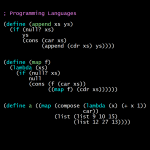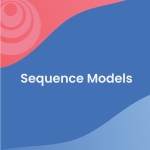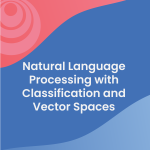[As described below, this is Part B of a 3-part course. Participants should complete Part A first -- Part B "dives right in" and refers often to material from Part A.] This course is an introduction to the basic concepts of programming languages, with a strong emphasis on functional programming. The course uses the languages ML, Racket, and Ruby as vehicles for teaching the … [Read more...] about Programming Languages, Part B
Computer Science
Machine Learning for All
Machine Learning, often called Artificial Intelligence or AI, is one of the most exciting areas of technology at the moment. We see daily news stories that herald new breakthroughs in facial recognition technology, self driving cars or computers that can have a conversation just like a real person. Machine Learning technology is set to revolutionise almost any area of human … [Read more...] about Machine Learning for All
Sequence Models
In the fifth course of the Deep Learning Specialization, you will become familiar with sequence models and their exciting applications such as speech recognition, music synthesis, chatbots, machine translation, natural language processing (NLP), and more. By the end, you will be able to build and train Recurrent Neural Networks (RNNs) and commonly-used variants such as GRUs and … [Read more...] about Sequence Models
Scrum Master Certification: Scrum Methodologies
This course is designed to help Scrum beginners learn the foundational knowledge to become proficient with Agile Scrum. Throughout the course, learners will explore User Stories and how they are prioritized in Agile, Velocity, Backlog Refinement, and Market Actions. Learners will also learn about different Scrum Reports and methods of managing risks. … [Read more...] about Scrum Master Certification: Scrum Methodologies
Natural Language Processing with Classification and Vector Spaces
In Course 1 of the Natural Language Processing Specialization, you will: a) Perform sentiment analysis of tweets using logistic regression and then naïve Bayes, b) Use vector space models to discover relationships between words and use PCA to reduce the dimensionality of the vector space and visualize those relationships, and c) Write a simple English to French translation … [Read more...] about Natural Language Processing with Classification and Vector Spaces






